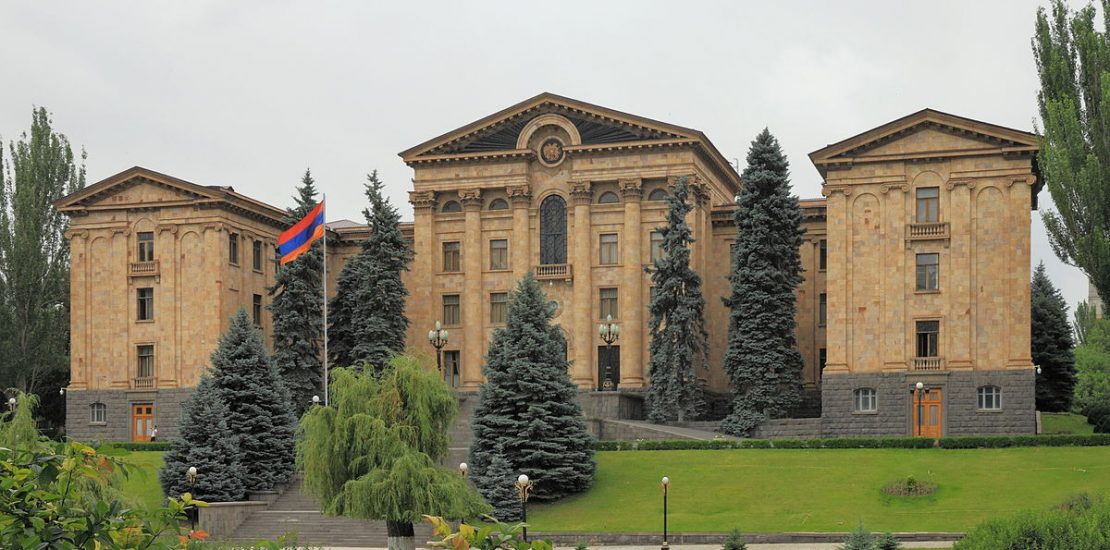- 14 June, 2019
- Democracy and Human Rights

As it is known, the National Assembly has established an Inquiry Committee to investigate the circumstances of the military actions in April 2016. This is the 3rd Inquiry Committee ever created in the National Assembly (the first was established last year and was related to the wiretapping story, and the second investigates issues related to the Water Committee).
The Institute for Parliamentary Inquiry Committees was introduced in Armenia in May 2017 (the date of the first session of the 6th convocation parliament) when the relevant part of the 2015 constitutional amendments came into force. However, all the three inquiry committees were created after the 2018 revolution.
Though the parliament has slightly increased the investigative functions of the inquiry committee on October 2, 2018, they are still quite incomplete. These mechanisms not only fail to reflect the logic of the role of the parliament in the parliamentary state, but also do not even ensure the full implementation of the National Assembly’s oversight function.
Appearing and answering questions
Article 22 of the Constitutional Law of the Republic of Armenia on Rules of Procedure of the National Assembly stipulates that “Officials invited to the Inquiry Committee are obliged, and other persons who have submitted information related to the jurisdiction of the Committee shall have the right to be present and give explanations at the sitting of the Committee as well as answer the questions of the Committee members.”
That is, if officials are at least obliged to appear and answer the questions of the Inquiry Committee, other persons simply have such a right and may not appear or they can appear and not answer the questions of the committee.
Moreover, there is no criminal liability for breach of this legal regulation and there is no mechanism to ensure its compliance. That is, if the current or former official who is called to the Inquiry Committee does not appear or refuses to answer questions, it is not a criminal offense and it is not possible to ensure the enforcement of the measure by means of coercion.
And although the failure to answer the questions of the Inquiry Committee member may be classified as misdemeanor under Articles 189.7 or 189.10 of the Administrative Offenses Code, the fine is 50-100 thousand AMD. Meanwhile, the public danger of the act is considerably greater.
Provision of accurate data
Let us turn to the mechanisms (or their absence) that should secure the provision of accurate information to the Committee or MPs (protection from false information).
The special section of the Criminal Code of Armenia has two articles (148 and 338) that make the provision of false (distorted or fake) information a criminal offense. However, none of these articles can refer to the case of providing obviously false information to a member of the parliamentary Inquiry Committee or an MP.
While Article 189.10 of the Code of Administrative Offenses fills this gap to some extent, the description of the objective side of the offense in those articles is envisaged for different situations, and its application may be problematic in the case of providing false information to the Inquiry Committee or MP. And second, the public danger of providing obviously false information to the MP is considerably greater.
Solutions
In order to solve these issues, first of all, it is necessary to make amendments and additions in Article 22 of the Constitutional Law “Rules of Procedure of the National Assembly”, according to which it will be obligatory for all persons to appear before the Committee upon the invitation of the Inquiry Committee and answer the questions of the members of the committee.
Moreover, this article shall provide for a mechanism for bringing those persons to court who were summoned to the commission, but did not appear failing to provide a justified reason (approximately as it is provided for in Article 153 of the Criminal Procedure Code).
And in order to minimize the risk of not answering the questions of the NA Inquiry Committee or providing false information, it is necessary to make amendments in the Criminal Code, criminalizing these two acts. At the same time, it is necessary to provide legal regulations that will protect the right to exemption from the obligation to testify in relation to the person himself/herself, his or her spouse or close relatives as stipulated in Article 65 of the Constitution.
With the introduction of these legal regulations, it will be possible to provide a more effective and thorough investigation of the NA Inquiry Committees and substantially increase the validity of the report.
Daniel Ioannisyan
Union of Informed Citizens




